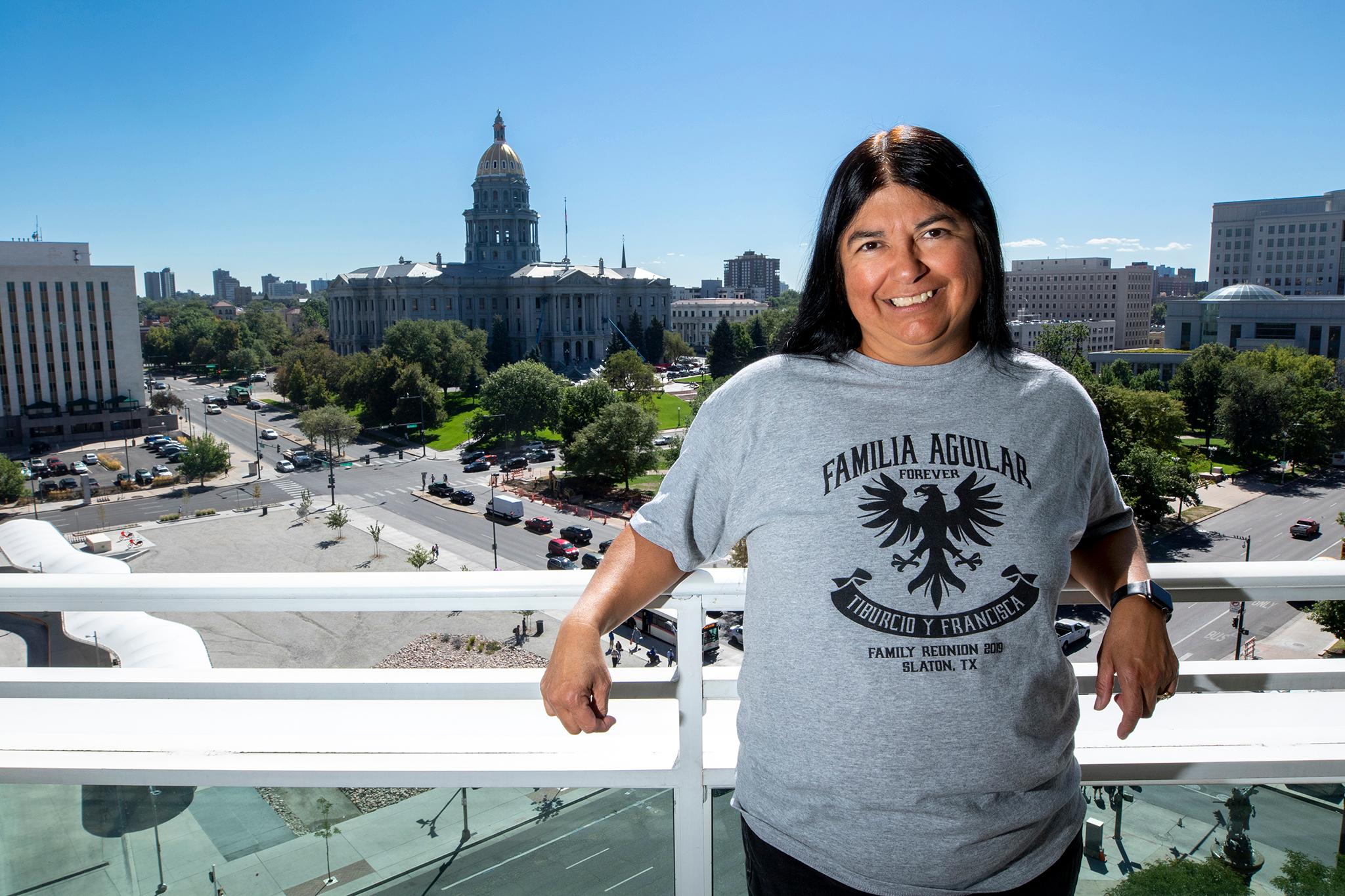The city official charged with addressing displacement is questioning whether rules and regulations that affect housing ensure that everyone has a chance to live and thrive in Denver.
During a City Council meeting this week Dr. Irene Aguilar, director of the Neighborhood Equity and Stabilization Team, gave as an example fees that developers can pay instead of building below-market-rate housing.
The linkage fees, which the city uses for affordable housing projects, are "not high enough to encourage people to build affordable housing," Aguilar said.
"Your policies need to catch up with your values," she told city council members who sit on the policy committee. "Because they're not there right now."
Aguilar's Neighborhood Equity and Stabilization Team, known as NEST, was created last year in the city government's economic development department with the goal of helping longtime businesses and residents stay in fast-changing neighborhoods such as Globeville, Elyria-Swansea and much of west Denver. In a booming city, the idea is that longtime residents as well as newcomers should benefit from the economic opportunities and improved infrastructure that come with gentrification.
The city's Housing Advisory Committee, composed of leaders from the private, nonprofit and government sectors who are concerned with housing, has set studying the linkage fee as a key goal in the coming year as part of an exploration of "additional opportunities to expand and/or leverage the city's housing investments." That's according to an action plan completed yearly to support the Housing an Inclusive Denver five-year plan.
During the committee meeting that Aguilar addressed, several council members picked up on her theme of concern about a possible disconnect between policy and goals expressed in vision documents, chiefly Blueprint Denver, a bulky compendium of guidance on growth that City Council adopted in April. Blueprint Denver sets a high value on equity, or ensuring the city is economically, socially and racially diverse.
City Councilwoman Amanda Sandoval said she has hired a staffer trained as a planner and has a good relationship with the city planning staff and planning board. But she said she felt constrained by her reading of the criteria that governs votes on rezonings.
"I just feel handcuffed by the system," she said.
Sandoval's colleague Paul Kashmann said, "It really feels like it's time for this council to look at the criteria by which we address zoning."
Citywide planning manager Sarah Showalter said in an interview that changing the zoning code would be a lengthy process. But Blueprint Denver and other planning documents, she said, can be deployed now. The first criterion council members are asked to consider when a rezoning is before them is whether the proposed change is consistent with adopted plans such as Blueprint Denver.
Showalter said developers seeking large-scale rezonings are being advised about data such as figures showing specific neighborhoods lack access to fresh food or housing options for people at different income levels. Those seeking rezonings are asked to show how their development plans will address such issues. Planning staff are also pressing developers to commit to building certain percentages of affordable housing, Showalter said.
"We're hoping that having these more data-driven conversations for these larger sites will help us get better outcomes," she said.
She said the process is in its early stages and it may be some time before requests informed by such conversations reach the stage of a rezoning measure up for a council vote.
Showalter said planning staff has been meeting with council members to brief them on the possibilities presented by Blueprint Denver but had only reached two before the policy committee meeting at which Aguilar spoke.
Stacie Gilmore, who chairs the committee, called Kirsten Crawford to address the meeting after Aguilar gave her briefing. Crawford, the legislative council from the city attorney's office, regularly attends council meetings.
"A no vote is perfectly acceptable based on criteria," Crawford advised council members during the meeting.
Councilwoman Gilmore suggested during the meeting that a workshop could be held bringing together all council members, Planning Board members, planning staff and perhaps members of the public to discuss the concerns Aguilar raised. Showalter said planning staff was open to that idea.













